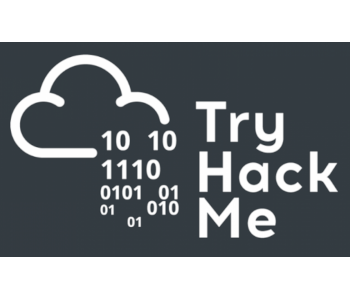How to Get Into Cyber Security – What It Takes as a Career
Cybersecurity is one of the fastest-growing industries in the world. In a society where hacking and other cybercrimes are becoming a regular occurrence, the need for cybersecurity professionals is higher than ever.
According to IBM, in the last six years, cybersecurity job postings have risen by 94%, and this incline is expected to continue further as we head into the new decade. These statistics also represent a 300% increase compared to the IT job market overall, making cybersecurity an excellent industry to become a part of when it comes to job opportunities.
One of the greatest things about cybersecurity is the fact that it is such a versatile industry. This means there are a variety of avenues you can go down in order to break into the field, allowing you to tailor your approach.
In this guide, we will be discussing several of the most prominent of these avenues, with the view that you too can find a place in this exciting and ever-growing field of work. So, if cybersecurity seems like the right career path for you, stick around, as the following information should help you figure out where to start.
Having a Technical Background

One way for you to get into cybersecurity is by already having a background in another computer-related field. This will make it far easier to transition into a cybersecurity role, as you will already be familiar with certain computer technologies and architectures.
Prior programming knowledge, for example, will allow you to better identify malicious code, as you will be able to read and understand the functions of the program as well as its purpose. This can make your job a lot easier if you need to reverse engineer malware or write programming scripts of your own.
Networking knowledge is also fundamental for anyone looking to get into cybersecurity, as much of the work you will be doing will involve analyzing and possibly infiltrating networks in order to obtain information. This could be for a company that wants you to test their network security or even for the police to help with a criminal investigation.
Knowledge of how web technologies work is also worth picking up, as much of the world’s digital infrastructure is now connected to the internet. This will make your job a lot easier if you are required to hack a web application, for example, as you will be familiar with how each component within the online ecosystem fits together.
Obtaining A Degree In Cybersecurity Or A Related Field

Many people opt for the educational route to gain a career in cybersecurity, often turning to University or College to obtain a degree or other high-level qualifications. Most of the time these qualifications will be in cybersecurity or another computing-related field. However, some people have also broken into the industry with qualifications in maths, engineering, and other sciences.
A good degree program will often have some precursors attached to it, such as other qualifications you need to have to be eligible. In some cases, however, individuals have managed to cement themselves on a course through experience and professional recommendations.
One thing to take into consideration if you plan to take the educational route is the amount of investment you will be required to make. This doesn’t only apply to money, but also time as well, as you will need to invest a few years of your life into obtaining your desired qualification.
This can make obtaining a degree difficult if you have already left education, as you may be in a position where you need to support a family. In this scenario, a degree probably isn’t the best option to go for. However, it could still be viable if you are able to receive enough funding.
Obtaining Cybersecurity Certifications

Another great way to get into cybersecurity is by investing in professional certifications. While expensive, these certifications offer a great way to learn relevant cybersecurity skills and build your knowledge in a relatively short space of time. They are also recognized by most employers in the industry and are highly regarded by many of the top professionals in the space.
Often times, graduates will turn to professional certifications after obtaining their degree, which is a great choice if you have the funding. However, for many individuals, this is simply not viable. In some cases, the company you work for will fund you to obtain certifications. However, this is only common if you already work in a cybersecurity-related role.
Some of the top cybersecurity certifications include:
The CompTIA Security+ certification focuses predominantly on teaching you how to identify security threats and vulnerabilities. The course also covers security hardware, software, and architecture, as well as risk management and even cryptography.
EC-Council: CEH (Certified Ethical Hacker)
The CEH certification is highly recommended as one of the first certifications you should obtain when you enter the cybersecurity industry. The reason for this is because the course covers a wide range of ethical hacking techniques, such as reconnaissance, network scanning, system hacking, and evasion, giving you a great foundation of skills to build from. Several other EC-Council courses also follow on from this one, which is something to consider if you plan on doing several of them.
EC-Council: ECSA (Certified Security Analyst)
The ECSA certification focuses on teaching you the necessary skills you need to become a security analyst. This means it covers
(ISC)2: CISSP (Certified Information Systems Security Professional)
GXPN (GIAC Exploit Researcher & Advanced Penetration Tester)
Self-Learning

The last option in this guide and usually the cheapest is self-learning. This involves teaching yourself the necessary skills you need through online courses, reading documentation, and a lot of trial and error.
While this is the most cost-effective method in this guide, it can also be the most frustrating. One of the reasons for this is because self-learning can sometimes be an afterthought for many people, leading them to place more emphasis on other parts of their life and, therefore, neglecting their learning.
This makes it an unreliable option for people who know they lack self-discipline, as it can be difficult for them to find the motivation. If you have a full-time job, as well as family commitments, you may also struggle with this option, as you likely have more important things to be getting on with for large parts of your day.
As a self-learner, you will also want to familiarize yourself with exactly what you can and can’t do from a cybersecurity perspective. This is because certain tasks associated with the profession often require permission, and given the fact that you are self-learning, this may be hard to come by. Because of this, it is imperative that you have a good read of your country’s cybersecurity laws before you get started, as you don’t want to risk getting into trouble.
If you are interested in taking the self-learning route, there are several excellent resources available and below we have listed a few to help you get started.
TryHackMe
TryHackMe is a web-based platform designed to teach ethical hacking skills in a safe environment through the use of virtual machines and other resources. As it stands, the site has over 17,000 users, a number which is steadily increasing as the industry becomes more popular.
Udemy
Udemy is an online learning platform designed to help professionals and students learn new skills and master a variety of disciplines. Many of the platform’s courses target the technology sector, allowing you to learn a variety of programming languages and other useful skills such as networking, and system architecture. Cybersecurity is also a fairly popular topic on the site, with over 150 courses at the time of writing.

